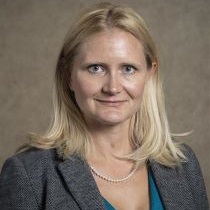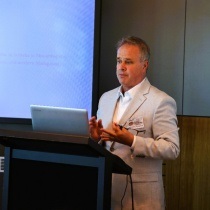Events
Center for the Integration of Research, Teaching and Learning
The Virtual Maple League Teaching and Learning Centre
Connecting people from different disciplines and backgrounds — to create new communities and strengthen existing ones — is one of the foundational strengths of the Maple League.
��
Indigenous AI Virtual Reading Group
The reading group discussions take place online on September 25, October 30, and November 27. Please see details for session times.
Reading group description and registration
Discussion Dates
- September 25, 1–2 p.m. Sections 1-3 (pp. 1-42)
- October 30, 1–2 p.m. Section 4 (pp. 43-90)
- November 27, 11 a.m.–12 p.m. Section 5 (pp. 91-122)
While discussions about artificial intelligence (AI) have become increasingly commonplace within academia, seldomly are Indigenous perspectives included within these conversations apart from being gestured to as one of the many “equity issues” surrounding the use of AI.
Providing a dedicated space for ������̳ community members to expand their understanding of the intersections of Indigenous knowledge systems and AI, this virtual reading group invites participants to question and consider how AI advancements compliment, challenge, resonate and/or contrast with various Indigenous worldviews, ethics, and epistemologies.
The chosen text for Fall 2024, , is the result of collaborative work between Māori, First Nations, Inuit, Métis, Pacific Islanders, and Aboriginal Australians, that recognizes and affirms the diversity of Indigenous views and approaches to generative AI. As described by the authors, “rather than being a single unified statement this position paper is a collection of heterogeneous texts that range from design guidelines to scholarly essays to artworks to descriptions of technology prototypes to poetry.” (2020) Regardless of the discipline your work is situated within, this series aims to offer meaningful opportunities to engage with the complexities of AI and Indigenous knowledge systems. Through a series of facilitated discussions, participants will delve into the diverse perspectives presented in the position paper, critically examining how Indigenous protocols can inform ethical AI development, challenge existing paradigms, and propose alternative approaches.
Facilitators
- Rachelle McKay, Anishinaabe, MA Indigenous Governance – Educational Developer, Indigenous Knowledges & Ways of Knowing
- Abdullah Al Mukaddim – Artificial Intelligence Analyst
Upcoming Sessions
September 20: Mental Health 101 - Recognizing and Responding to Students in Distress (in-person)
Friday, September 20
10 a.m.-12 p.m.
Killam Library, Room B400*
Facilitators
Joanne Mills, Psychologist, Student Health & Wellness, and two Stay Connected Peer Support workers (who are students themselves).
The MH101 session is limited to faculty, instructors, and staff at ������̳ and King's.
In any given year 1 in 5 Canadians will experience a mental illness, and according to Statistics Canada youth aged 15-24 are the most likely group to suffer the effects of a mental illness, substance dependency and suicide. Considering most university students are within this age group it is essential that those working with University students are provided the necessary knowledge and resources to recognize and respond to students in distress.
MH101 is a short yet informative presentation developed for university faculty and staff to increase awareness and understanding of mental illness and mental health problems, thus increase your confidence in supporting students.
*Please note that the B400 classroom is in the basement of the Killam Library. We are aware of, and apologize for, the accessibility barriers associated with this room. If you require the use of an elevator to reach this room, one of the CLT staff will have to access the elevator with you, using their key card. Please let us know in advance so that we can facilitate a smooth and timely transition to the basement.
We also ask that participants be respectful of those with significant allergies and avoid wearing perfume, aftershave, cologne, and highly scented hairspray, soaps, lotions, and shampoos.
September 23: Constructing Effective Rubrics with Rubric Swap
Monday September 23
10-11:30 a.m.
Killam Library, Room B400 (basement)*
Want to spend LESS time grading and providing feedback? Grading using rubrics has many benefits such as reducing grading time for instructors, and providing clear and consistent expectations to students. In this in-person workshop, you will:
- Learn the purpose and principles underlying grading using rubrics.
- Be introduced to different types of rubrics, the components that make up a rubric, appropriate language to use for rubrics, and the step-by-step process for constructing effective rubrics.
- Participate in a rubric swap! Review and share feedback on a peer’s rubric. Workshop participants are kindly asked to bring one paper copy of a rubric that you are looking to gather feedback on. If you do not have one, a sample rubric will be provided by the workshop facilitator.
Facilitator
Daniella Sieukaran, Senior Educational Developer (Curriculum), Centre for Learning and Teaching
Intended Audience
- Faculty
- Graduate Students
*Please note that the B400 classroom is in the basement of the Killam Library. We are aware of, and apologize for, the accessibility barriers associated with this room. If you require the use of an elevator to reach this room, one of the CLT staff will have to access the elevator with you, using their key card. Please let us know in advance so that we can facilitate a smooth and timely transition to the basement.
We also ask that participants be respectful of those with significant allergies and avoid wearing perfume, aftershave, cologne, and highly scented hairspray, soaps, lotions, and shampoos.
September 25: COIL: A Collaborative Teaching Model-Leveraging Online Pedagogy for Global Engagement and Diverse Learning Experiences
Wednesday, September 25
11:30 am-12:30 pm
Online via Microsoft Teams
COIL (Collaborative Online International Learning) is a teaching model that is primarily used for internationalization of academics. It has been broadly used by instructors who are (i) interested in expanding students’ intercultural and global perspectives (ii) keen on offering inclusive and digitally accessible learning experiences, and (iii) seek innovative teaching and learning experiences through diverse perspectives of knowledges and ways of knowing. According to Jon Rubin who coined the term COIL in 2006 for virtual exchange educational programs, “in its most essential and typical form, COIL is a bilateral exchange and corresponding pedagogy, embedded into existing courses across two, or sometime more, institutions.”
A more holistic definition developed by Rubin (2021) is that “COIL utilizes the Internet to empower students and instructors around the world to develop curiosity, flexibility, and generosity in concert with their academic partners. This benefits two or more classrooms of collaborating students, usually located in different countries, who have had different life experiences. COIL is also a way for students and instructors to learn about their discipline from a new perspective and can be a method for engaging those with other experiences and perspectives about how this knowledge might be applied.”
In this 1-hour interactive introductory session, participants will be introduced to COIL as I respond to What, Why, and How questions you may have on your minds about COIL. Dr. Leanne Stevens (Faculty of Science) will be invited to share her initial thoughts on COIL as she plans to introduce the model for Faculty of Science as the Associate Dean Academic.
Keywords
international, intercultural, inclusive, global
Presenters
Dr. Leanne Stevens, University Teaching Fellow and Associate Dean Academic, Department of Psychology and Neuroscience, Faculty of Science
Dr. Shazia Nawaz Awan, Educational Developer, Internationalization and Intercultural Competency, Centre for Learning and Teaching
Intended Audience
- Faculty, Staff and Graduate Students who are interested in international and intercultural teaching and learning experiences
- Open to all
October 1, 8, & 15: Graduate Teaching Dossier Retreat
A teaching dossier is a critical component for any academic job search, and yet we often do not consider the time and work it takes to develop a dossier that reflects the experience, values, and evidence of our teaching. This two-week retreat covers the fundamentals of a teaching dossier (e.g., teaching philosophy, student evaluations, teaching materials), and will provide you with an opportunity to take the time to start developing the foundations to your own dossier and reflect on your learning and teaching experiences. You will also have the opportunity to give and receive peer feedback. The retreat facilitators will also be available to answer questions and offer guidance on the development of your dossier.
October 3 & November 5: CLT Virtual Drop-in Education Exchange
| Thursday, October 3 1-3 p.m. Online via Microsoft Teams |
Tuesday November 5 10 a.m.-12 p.m. Online via Microsoft Teams |
Come to our virtual drop-in session to connect with a Senior Educational Developer! Ask questions on how to enhance your teaching practices, bounce new ideas off a sounding board, debrief on your teaching experiences, and receive resources to support you on your teaching journey. Some topics you may wish to discuss include, but are not limited to: course design, teaching approaches, active learning, assessment design, managing challenging student behaviour, how to use SLEQ feedback, and the emotional labour of teaching. Join online anytime during the listed times, and stay for as little or as much time as you would like.
To receive the links to the drop-in sessions, .
Facilitator
Daniella Sieukaran, Senior Educational Developer (Curriculum), Centre for Learning and Teaching
Intended Audience
- Faculty
- Graduate Students
- This session is limited to the ������̳ and King's community
October 4: CLT Teaching and Learning Grant Showcase
Friday, October 4
10:30 a.m.–3 p.m.
Killam Library, Room B400*
The Centre for Learning and Teaching has several Teaching and Learning Grants that are awarded annually. This event will showcase projects that have been supported by CLT Teaching and Learning Grants. In these roundtable sessions, each presenter/grant recipient will be assigned to a table. Attendees will choose a table, and the presenters will take 15-20 minutes to share and discuss the teaching and learning projects they are working on or have completed that have been supported by their CLT grant. Then, attendees can move to another table and repeat this process.
These chats with grant recipients will be a great opportunity to:
- Learn about some amazing teaching and learning initiatives happening at Dal that you may be able to adapt or implement in your own courses
- Get an idea for the kinds of projects that the CLTs grants support to inform your own grant applications
- Network with Dal faculty, staff, and students who have a passion for teaching and learning
There will be complimentary coffee, tea, and snacks!
Each session has a registration cap of 15-20, so please register for each session you’d like to attend.
Session 1
10:30–11:30 a.m.
- “Building graduate student competencies in academic publishing through the Healthy Populations Journal (HPJ): Special Issue on Inter-Professional Health Education (IPHE) and Collaborative Practice”, Sara Kirk & Ivan Beck, Anne Marie Ryan Teaching and Learning Enhancement Grant Recipient, 2024
- “Evaluating Internships to Support Student Learning and Wellbeing”, Becky Feicht, Scholarship of Teaching and Learning Grant, 2022
- “Process evaluation of the implementation of an inaugural Advanced Pharmacy Practice Experience in a Collaborative Healthcare Setting focusing on student integration into hospital inpatient clinical pharmacy services”, Natalie Kennie-Kaulbach, Scholarship of Teaching and Learning Grant, 2022
- “Students as Partners: Designing and Implementing Learning Assistant (LA) Program to Enhance Undergraduate Biochemistry Education”, Shawn Xiong, Anne Marie Ryan Teaching and Learning Enhancement Grant Recipient, 2022
Session 2
12:30–1:30 p.m.
- “Colour Chemistry: Development and implementation of colour filter cards to reduce barriers individuals with colour vision deficiency experience when interpreting colour based experimental results” (2021) and “Exploring Sensory Friendly Laboratory Environments” (2023), Jennifer MacDonald, Anne Marie Ryan Teaching and Learning Enhancement Grant Recipient, 2021 and 2023
- “Eco-Hope: Developing Strategies to Counter Eco-Anxiety and Build Resilience in Students”, Amy Mui & Georgia Klein, Anne Marie Ryan Teaching and Learning Enhancement Grant Recipient, 2023
- “Conceptual Transfer for Students Learning New Programming Languages”, Eric Poitras, Scholarship of Teaching and Learning Grant, 2022
Session 3
2–3 p.m.
- “Developing Microbial Observatory Science Outreach Modules (MOSOMs)”, Joseph Bielawski & Jessica Latimer, Anne Marie Ryan Teaching and Learning Enhancement Grant Recipient, 2024
- “Enhancing accessibility of online learning resources for Introductory Organic Chemistry CHEM2401”, Alison Thompson & Gaia Aish, Anne Marie Ryan Teaching and Learning Enhancement Grant Recipient, 2022
- “Collaborative development of anti-colonial occupational therapy pedagogy.” Kaarina Valavaara, Anne Marie Ryan Teaching and Learning Enhancement Grant Recipient, 2023
Event host
Dr. Kate Thompson. Educational Developer (SoTL), Centre for Learning and Teaching
October 11: Collaborative Grant Writing Session
Friday, October 11
1-3 p.m.
Killam Library, Room B400*
������̳’s Centre for Learning and Teaching offers several Teaching and Learning Grants, and the fall application deadlines are fast approaching! If you’re planning to apply for any of these grants, this session is for you.
The session will start with an opportunity to hear from two previous grant recipients who will share tips and tricks about the grant writing process. They will discuss how they approached writing and formatting their grant applications, and there will be an opportunity to ask questions.
Then, participants will have plenty of time to work together to write, brainstorm, ask questions, and get feedback about your grant applications.
Facilitators
Dr. Kate Thompson, Educational Developer (SoTL) with the CLT
Dr. Amy Mui, Senior Instructor, Department of Earth and Environmental Sciences
Dr. Eric Poitras, Assistant Professor, Faculty of Computer Science
Intended Audience
- Faculty and staff
- Graduate students
*Please note that the B400 classroom is in the basement of the Killam Library. We are aware of, and apologize for, the accessibility barriers associated with this room. If you require the use of an elevator to reach this room, one of the CLT staff will have to access the elevator with you, using their key card. Please let us know in advance so that we can facilitate a smooth and timely transition to the basement. We ask that participants be respectful of those with significant allergies and avoid wearing perfume, aftershave, cologne, and highly scented hairspray, soaps, lotions, and shampoos.
October 16: Introduction to Qualitative Research Methods in SoTL
Wednesday, October 16
2–3 p.m.
Online via Microsoft Teams
The aim of this session is to provide an overview of the foundational concepts in qualitative research methods as they apply to the design of teaching and learning research. We will explore the purpose of qualitative research and the methodological characteristics that distinguish it from quantitative research. We will also discuss key qualitative paradigms and approaches, such as phenomenology and grounded theory, the role of the researcher in qualitative studies, and strategies to enhance the trustworthiness of qualitative research. The session will conclude with guidance on formulating research questions in qualitative studies. This session is the first in a series on qualitative research methods; subsequent sessions will cover reliability, data collection methods, data coding, and analysis.
Facilitator
Dr. Nasim Tavassoli – Educational Developer (Student Development) with the Centre for Learning and Teaching
Intended Audience
- Faculty
- Staff
- Graduate Students
- Open to external people
This session is part of the SoTL Scholars Program annual series of workshops on the topic of SoTL.
October 17: Global Engagement and COIL- Teaching Experiences of Faculty from ������̳ and Meru University of Science and Technology, Kenya
Thursday, October 17
2-3:30 p.m.
Online via Microsoft Teams
 Dr. Peter Wafula Masinde |
 Dr. Lord Abbey |
 Audrie-Jo McConkey |
 Dr. Greg Cameron |
COIL (Collaborative Online International Learning) is a teaching model that is primarily used for internationalization of teaching and learning experiences. It has been broadly used by instructors who are (i) interested in expanding students’ intercultural and global perspectives (ii) keen on offering inclusive and digitally accessible learning experiences, and (iii) seek innovative teaching and learning experiences through diverse perspectives of knowledges and ways of knowing.
As part of global engagement initiatives, at ������̳, Faculty of Agriculture, instructors have been engaged in virtual exchange of educational programs through multiple ways. One of which is COIL, which was leveraged as a bilateral exchange and corresponding pedagogy, embedded into existing courses across international settings.
In this session, professors from ������̳ and MUST, Kenya will share their experiences as they developed, collaborated on and taught COIL courses and will share what worked, what lessons were learned, and how they see COIL in their future projects. Please join us to learn more about their COIL experiences and how that can inspire you for your courses.
Key words: international, intercultural, inclusive, global, collaborative
Panelists
- Dr. Peter Wafula Masinde, Associate Professor of Horticulture, School of Agriculture and Food Science, Meru University of Science and Technology, Kenya
- Dr. Lord Abbey, Associate Professor, ������̳ Faculty of Agriculture
- Audrie-Jo McConkey, Senior Instructor, Department of Animal Sciences and Aquaculture.
- Dr. Greg Cameron, Associate Professor of Political Science and Rural Studies, Department of Business & Social Science, Faculty of Agriculture, ������̳
Moderator
Dr. Shazia Nawaz Awan, Educational Developer, Internationalization and Intercultural Competency, Centre for Learning and Teaching
Intended Audience
- Faculty
- Staff
- Graduate Students
- Open to external people
October 29: The Resilient Classroom Series: Navigating the Emotional Labour of Teaching
Tuesday October 29
10:30 a.m.-12 p.m.
Killam Library, Room B400 (basement)
Back by popular demand: the Navigating the Emotional Labour of Teaching workshop! “Emotional labour” is a term that was first coined by sociologist Arlie Russell Hochschild in 1983 to describe the process of managing outward expressions of feelings to fulfill the emotional requirements of a job. It involves wearing a “mask” that requires the suppression of negative emotions and the display of only positive emotions, regardless of how you actually feel. Consider a time when you received negative news and then had to teach ten minutes later or when you had to hide your frustration while telling the tenth student, “Check the syllabus!” Performing emotional labour can lead to lower job satisfaction and burnout (Humphrey, 2021). In this in-person workshop, you will:
- Learn what emotional labour looks like in the context of teaching and its associated impacts.
- Be introduced to a set of strategies to redirect the energy and efforts used for emotional labour toward effective pedagogy and instructor self-care.
- Reflect upon your own experiences with emotional labour in your teaching. Group sharing is welcomed, but not required.
Facilitator
Daniella Sieukaran, Senior Educational Developer (Curriculum), Centre for Learning and Teaching
Intended Audience
- Faculty
- Graduate Students
- Open to the ������̳ and King's community only
November 4: Mental Health 101 - Recognizing and Responding to Students in Distress (online)
Monday, November 4
1-3 p.m.
Online via Microsoft Teams
Facilitators
Joanne Mills, Psychologist, Student Health & Wellness, and two Stay Connected Peer Support workers (who are students themselves).
The MH101 session is limited to faculty, instructors, and staff at ������̳ and King's.
In any given year 1 in 5 Canadians will experience a mental illness, and according to Statistics Canada youth aged 15-24 are the most likely group to suffer the effects of a mental illness, substance dependency and suicide. Considering most university students are within this age group it is essential that those working with University students are provided the necessary knowledge and resources to recognize and respond to students in distress.
MH101 is a short yet informative presentation developed for university faculty and staff to increase awareness and understanding of mental illness and mental health problems, thus increase your confidence in supporting students.
*Please note that the B400 classroom is in the basement of the Killam Library. We are aware of, and apologize for, the accessibility barriers associated with this room. If you require the use of an elevator to reach this room, one of the CLT staff will have to access the elevator with you, using their key card. Please let us know in advance so that we can facilitate a smooth and timely transition to the basement.
We also ask that participants be respectful of those with significant allergies and avoid wearing perfume, aftershave, cologne, and highly scented hairspray, soaps, lotions, and shampoos.
��
Past CLT Events
��
Annual AAU Showcase
Acadia University is hosting the 2024 (AAU) Teaching Showcase on Saturday, November 2, 2024 in Wolfville Nova Scotia.�� For more information on the conference email��teaching@acadia.ca or ��(PDF - 277 KB).
CLT Webinars: Recordings and Resources
The ������̳ community can now self-enrol in the Brightspace site.
